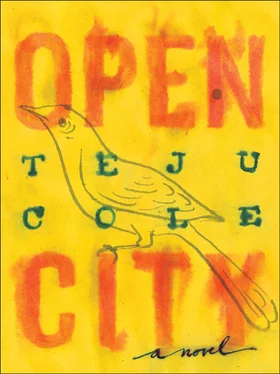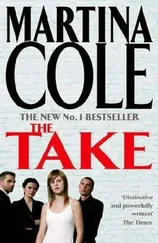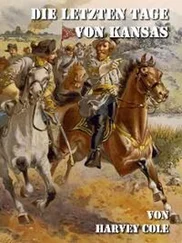After paying, I walked the four blocks to the movie theater on what, I recall, was a warm night. I had my recurrent worry about how warm it had been all season long. Although I did not enjoy the cold seasons at their most intense, I had come to agree that there was a rightness about them, that there was a natural order in such things. The absence of this order, the absence of cold when it ought to be cold, was something I now sensed as a sudden discomfort. The idea that the weather was changing noticeably bothered me, even if there was as yet no evidence that this warm fall in particular wasn’t due to a perfectly normal variation in patterns that stretched across centuries. There had been a natural little ice age in the Low Countries in the sixteenth century, and so, why not a little warm age in our own time, independent of human causes? But I was no longer the global-warming skeptic I had been some years before, even if I still couldn’t tolerate the tendency some had of jumping to conclusions based on anecdotal evidence: global warming was a fact, but that did not mean it was the explanation for why a given day was warm. It was careless thinking to draw the link too easily, an invasion of fashionable politics into what should be the ironclad precincts of science.
Still, the way my thoughts returned to the fact that it was the middle of November and I hadn’t yet had occasion to wear my coat made me wonder if, already, I was one of those people, the overinterpreters. This was part of my suspicion that there was a mood in the society that pushed people more toward snap judgments and unexamined opinions, an antiscientific mood; to the old problem of mass innumeracy, it seemed to me, was being added a more general inability to assess evidence. This made brisk business for those whose specialty was in the promising of immediate solutions: politicians, or priests of the various religions. It worked particularly well for those who wished to rally people around a cause. The cause itself, whatever it was, hardly mattered. Partisanship was all.
The crowd at the ticket counter of the movie theater was atypical, but this is what I had expected, given the late hour of the film, the fact that it was set in Africa, and the absence of marquee Hollywood names. The ticket buyers were young, many of them black, and dressed in hip clothes. There were some Asians, too, Latinos, immigrant New Yorkers, New Yorkers of indeterminate ethnic background. The last film I’d seen at the same theater, months earlier, had had an audience consisting almost entirely of white-haired white people; many fewer of those were now in attendance. In the great cave of the theater, I sat alone. No, not alone, exactly: in the company of a hundred others, but all strangers to me. The lights went down, and as I slouched in a plush seat, as the film began, I noticed someone else in my row, at its far end: an old man, asleep, his head thrown back and his mouth open, so that he looked more dead than sleeping. He did not stir even when the film began.
The jaunty credit sequence featured music from the right time period, but not from the right part of Africa: what had Mali to do with Kenya? But I had come prepared to like some things about the film, and I expected that some other things would annoy me. Another film I had watched the previous year, about the crimes of large pharmaceutical companies in East Africa, had left me feeling frustrated, not because of its plot, which was plausible, but because of the film’s fidelity to the convention of the good white man in Africa. Africa was always waiting, a substrate for the white man’s will, a backdrop for his activities. And so, sitting to experience this film, The Last King of Scotland , I was prepared to be angry again. I was primed to see a white man, a nobody in his own country, who thought, as usual, that the salvation of Africa was up to him. The king the title referred to was Idi Amin Dada, dictator of Uganda in the 1970s. Decorating himself with spurious titles was only the least grim of his many hobbies.
I knew Idi Amin well, so to speak, because he’d been an indelible part of my childhood mythology. I remembered the many hours I had spent at my cousins’ watching a film called The Rise and Fall of Idi Amin . In that film, no detail was spared to present the callousness, insanity, and sheer excitement of the man. I was seven or eight at the time, and those images of people being shot and stuffed into car trunks, or decapitated and stored in freezers, stayed with me. The images were genuinely shocking because, unlike the blood-spattered American war movies we also enjoyed during those long school vacations, the victims in Rise and Fall looked like our fathers and uncles, with their safari suits, afros, and shiny foreheads. The cities in which this mayhem played out looked like our own city, and the bullet-riddled cars were the same models as the ones we saw around us. But we enjoyed the shock of it, its powerful and stylized realism and each time we had nothing to do, we watched the film again.
The Last King of Scotland mostly avoided such gory imagery. Its story was concentrated, instead, on the relationship between Idi Amin and the briefly innocent Scottish doctor, Nicholas Garrigan, whom he pressed into service as his personal physician. This was the story of a man in whom the classic traits of dictatorship had taken the most extreme form. With his extroverted madness — parts anger, fear, insecurity, quicksilver charm — Idi Amin murdered some 300,000 Ugandans during his rule, expelled the large community of Ugandan-Indians, destroyed the country’s economy, and earned himself a reputation as one of the most grotesque stains on Africa’s recent history.
While watching the film, I recalled an uncomfortable meeting I’d had one evening, in an opulent house in a suburb of Madison a few years before. I was a medical student at the time, and our host, an Indian surgeon, had invited me and a number of my classmates to his house. After we had eaten, Dr. Gupta ushered us into one of his three lavish living rooms, and went round pouring champagne into our glasses. He and his family, he told us, had been expelled from their homes and lands by Idi Amin. I am successful now, he said, America has made a life possible for me and for my wife and children. My daughter is doing graduate studies in engineering at MIT, and our youngest is at Yale. But, if I may speak frankly, I’m still angry. We lost so much, we were robbed at knifepoint, and when I think about Africans — and I know that we are not supposed to say such things in America — when I think about Africans, I want to spit.
The bitterness was startling. It was an anger that, I couldn’t help feeling, was partly directed at me, the only other African in the room. The detail of my background, that I was Nigerian, made no difference, for Dr. Gupta had spoken of Africans, had sidestepped the specific and spoken in the general. But now, as I watched the film, I saw that Idi Amin himself hosted wonderful parties, told genuinely funny jokes, and spoke eloquently about the need for African self-determination. These nuances in his personality, as depicted here, would no doubt have brought a bad taste to the mouth of my host in Madison.
I wished to believe that things were not as bad as they seemed. This was the part of me that wanted to be entertained, that preferred not to confront the horror. But that satisfaction did not come: things ended badly, as they usually do. I wondered, as Coetzee did in Elizabeth Costello , what the use was of going into these recesses of the human heart. Why show torture? Was it not enough to be told, in imprecise detail, that bad things happened? We wish to be spared, whether the story was about Idi Amin or Cornelis Van Tienhoven. It is a common wish, and a foolish one: no one is spared. Idi Amin’s young sons were named MacKenzie and Campbell — MacKenzie was epileptic — and these two Scots-Ugandans were caught in Idi Amin’s nightmare, and Obatala’s carelessness.
Читать дальше












